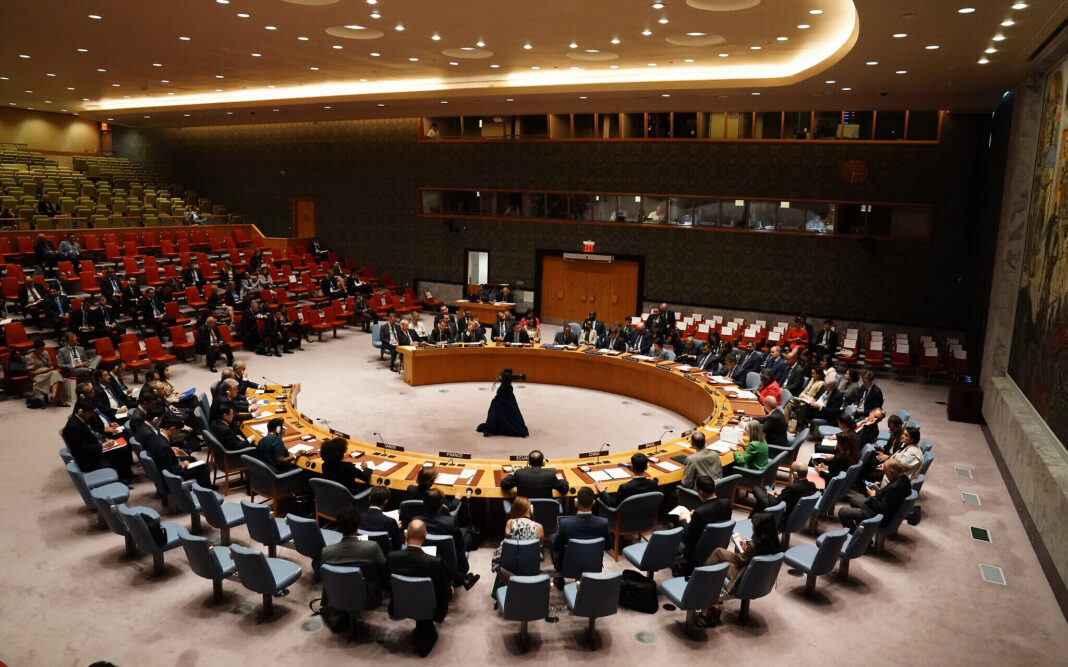UN Headquarters, New York, October 09: The UN Security Council convened an emergency session to address the escalating Israel-Hamas conflict, but the meeting revealed divergent views among member states. The disagreement was evident in both official statements and individual comments.
In the session, the United States, a vocal critic of Hamas, expressed disappointment at the lack of unanimity among Security Council members. Senior US diplomat Robert Wood remarked that while many nations condemned Hamas’s recent attacks, not all joined in the condemnation.
He subtly alluded to Russia, highlighting its reluctance to condemn Hamas due to its strained relations with Western nations stemming from the Ukraine crisis.
Russian Ambassador Vassily Nebenzia called for an immediate ceasefire and substantive negotiations, emphasizing the root causes of the conflict. Nebenzia’s statement reflected Russia’s stance on a broader focus beyond a simple condemnation of Hamas.
China, typically aligned with Russia at the Security Council, voiced support for a joint statement and condemned all attacks against civilians. Ambassador Zhang Jun expressed concern over the Security Council’s silence on the matter, highlighting the importance of a unified response.
Israel’s Ambassador, Gilad Erdan, provided compelling evidence of Israeli civilians being taken captive by Hamas, labeling these actions as clear war crimes demanding condemnation and international attention. Erdan’s passionate plea underscored Israel’s perspective on the urgency of the situation.
On the Palestinian side, the Ambassador representing the West Bank-centered Palestinian Authority, Riyad Mansour, called for the Security Council to prioritize efforts to end the Israeli occupation. He emphasized the need for a path to peace that would protect both Palestinians and Israelis from further harm. Mansour’s statement highlighted the Palestinian Authority’s perspective.
Notably, neither the Palestinian Authority nor Israel currently holds a seat on the Security Council.
The United Arab Emirates, which normalized relations with Israel in a landmark 2020 agreement, expressed deep concern about the ongoing situation. UAE Ambassador Lana Zaki Nusseibeh called for a political solution leading to a two-state resolution, echoing the sentiments of many Security Council members.
The meeting underscored the gravity of the situation and the deep divisions among Security Council members. As international efforts intensify to find a path toward peace and stability in the region, further meetings are expected to address the complex and longstanding Israel-Hamas conflict.
While the International Community is struggling to build a consensus on how to pacify the ongoing conflict, Israel has declared a “State of War” and promised fatal consequences for Hamas’s presence in the Gaza Strip.






